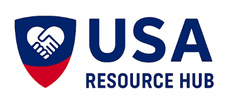It happens more often than people think. You move, switch jobs, close a bank account, or forget about a refund. Years pass, and that money sits untouched, waiting for someone to claim it. Across the United States, billions of dollars in unclaimed funds and rebates are held by government agencies, financial institutions, and companies. Some of it may belong to you.
Whether it’s a forgotten utility deposit, an old paycheck, or a rebate that never arrived, checking for unclaimed money is one of the simplest financial steps you can take. It’s free, fast, and in many cases, you can file a claim online.
What Counts as Unclaimed Money?
Unclaimed funds refer to money that was owed to you but never delivered. This can happen for a variety of reasons. Maybe your address changed and a check was returned. Maybe you closed a bank account and forgot about the remaining balance. Or maybe a company issued a refund or rebate that was never cashed.
Common sources of unclaimed money include:
- Utility deposits
- Insurance payouts
- Tax refunds
- Uncashed paychecks
- Bank account balances
- Retail or manufacturer rebates
- Pension benefits
- Class action settlements
- Savings bonds
- Credit union shares
- FHA mortgage insurance refunds
- VA life insurance funds
If you’ve moved, changed jobs, or had multiple accounts over the years, it’s worth checking.
Where to Start Your Search
There’s no single database for all unclaimed money. Instead, you’ll need to check a few key places depending on the type of funds you’re looking for.
Start with your state’s unclaimed property office. Every state maintains a database of unclaimed funds from businesses, banks, and insurance companies. You can search by name and submit a claim directly through the state’s website.
Use the National Association of Unclaimed Property Administrators (NAUPA) to access your state’s official portal. Most states also participate in MissingMoney.com, a free tool that lets you search multiple states at once.
If you’ve lived in more than one state, check each one individually. Unclaimed property is reported to the state where the company or organization is based, so you may have funds waiting in places you haven’t lived in years.
Federal Sources Worth Checking
Beyond state databases, several federal agencies hold unclaimed funds. These include:
- IRS: Use the Where’s My Refund tool to check for missing tax refunds. If you didn’t receive a stimulus check, you may need to file or amend a return to claim the Recovery Rebate Credit.
- Department of Labor: Search for unpaid wages from former employers.
- Pension Benefit Guaranty Corporation (PBGC): Check for unclaimed pension benefits.
- HUD: Look for FHA mortgage insurance refunds.
- VA: Search for unclaimed life insurance funds for veterans.
- TreasuryHunt.gov: Find matured savings bonds that have stopped earning interest.
- FDIC and NCUA: Search for funds from closed banks or credit unions.
- U.S. Courts: Use the Unclaimed Funds Locator to check for money from bankruptcy cases.
Each agency has its own process, but most allow online searches and claims.
Avoiding Scams
You do not need to pay to search for or claim unclaimed funds. If someone contacts you offering to recover money for a fee, proceed with caution. Many “finder” services are legitimate, but you can often file the same claim yourself for free.
Stick to official government websites and avoid sharing sensitive information with third-party services unless you’ve verified their credentials.
How Long Does It Take?
Processing times vary. Some claims are approved within weeks, while others may take longer if verification is needed. You’ll typically need to provide proof of identity and documentation showing your connection to the funds—such as an old address, account number, or employer name.
Once approved, payments are usually issued by check or direct deposit.
Unclaimed funds and rebates are more common than most people realize. A few minutes of searching could uncover money you forgot about—or never knew you were owed.
Start with your state’s unclaimed property office, then explore federal databases. The process is free, secure, and often surprisingly rewarding.


Leave a Reply